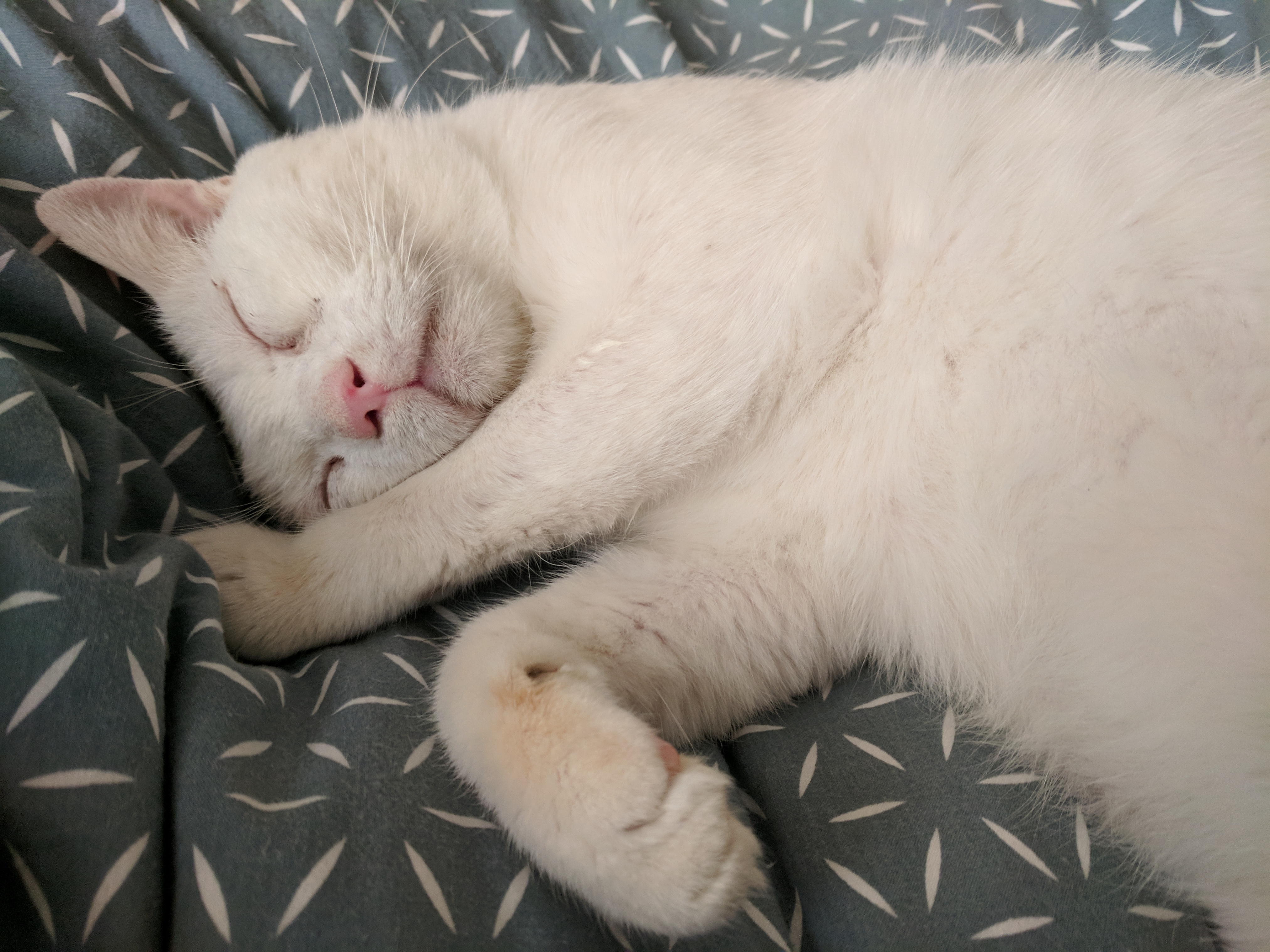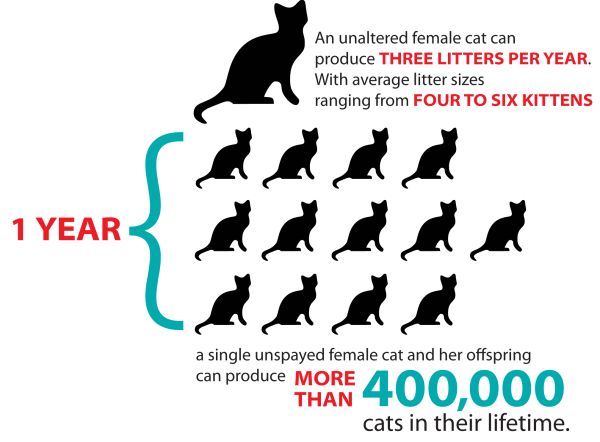Make sure to browse through our blog posts. There are some heart warming stories, useful facts and interesting insights. Feel free to share to share!
No such thing as a selfless act
I recall an episode of Friends from many years ago, where two of the main characters, Joey and Phoebe, argue that a true "Selfless Act" does not exist, that the person doing the good deed will always get something out of it. This may only be the feeling of satisfaction or warmth for having done a good thing for someone else but they are still getting something out of it.
Why was I reminded of this? Because my husband and I have taken our first few turns at feeding a managed cat colony in Doha!
I was a little anxious to volunteer in this capacity at first as we are both suckers for cats in need (this is how we have ended up with 16 cats in our home!) but following the first orientation trip to the feeding stations I felt a little more comfortable with the idea. After our first trip there unsupervised, we definitely came home with a warm, fuzzy feeling! Seeing the cats come running when we reached the feeding station, some cats grateful for the food, others more for the human interaction, was really wonderful. Then after only a few trips to the colony, we were already getting familiar with the little fuzzy faces that come crashing through the bushes as you shake the food container, or hauling ass across the waste ground to meet the car, so blatantly thrilled that we are there to see them.
It didn't take long to form a few favourites! The one that knocks the food from your hand as you try to fill the bowls, the other keeping a watchful eye (lovely One-Eyed Jack!) on you as you clean the water bowls, snatching up mouthfuls of food between glances. Andy with his croaky meow and waddly walk.
You head home from the colony knowing these cats will be safe, sleeping with full bellies and not venturing into dangerous areas looking for something to eat. You head home with a big smile on your face and a real sense of satisfaction. You head home knowing that this was not a selfless act.
Managed Colonies
Managed Colony (Definition) - A 'managed colony' is taken care of by humans who supply food and water to the cats, provide shelters and veterinary care, implement trap-neuter-return programs, find foster homes for cats that can be socialized for eventual adoption, and educate people in the neighborhood.[8][47]
The first and most important step in managing a colony is to spay and neuter the cats (Trap, Neuter, Return (TNR) - making sure they get their ears tipped to show they have been fixed). Starting early with a TNR programme is the best way, it is much easier to fix 5 or 6 cats than 50! This will lead to fewer mouths to feed in the long run. Female cats are the first goal, this helps to halt the population growth of the colony. Then move onto the males.
It is important to note that cats that are fed without being TNR'd reproduce at an even higher rate than they would without human support, so spaying and neutering is the key step in setting up a managed colony.
Next, feeding stations and schedules are implemented. For TNR Qatar, if there is more than one volunteer for any given colony then a rota is put in place to ensure the cats are fed at least every other day. This may seem infrequent but it is important to ensure the cats are not fully dependent on humans and don't lose their hunting and foraging skills. Unfortunately, some of TNR Qatar's colonies have only one volunteer so the cats may not get fed quite as often as others.
Then it is onto the monitoring phase. The cats are watched to ensure they are healthy and eating properly. A close eye is kept out for any additions to the colony. Any newcomers must be TNR'd as soon as possible or the colony management goes out the window - a new face in the colony can quickly destabilise the population by mating and producing more kittens!
There are generally three types of additions to a colony:
Stragglers
- Other cats may wander in from another area, although cats are very territorial and may not allow strangers into their inner circle
Kittens
- If the TNR programme was not successfully completed new kittens may be born, which sets back the TNR programme by at least 4 months while the kittens mature enough to be fixed. The mother will be fixed once the kittens are weaned
Dumped Pets
- The most heart-breaking of all is to see a former family pet abandoned to a colony. Dumped pets struggle in a colony as they are used to being cared for in a home, they don't have the survival instincts necessary to forage or hunt. They are often long-haired cats and cannot survive in the heat of Qatar. They stand out from the community cats as they look lost, perplexed and depressed.
If you are out and about in Doha and you see cats in the street, you would know ones that are part of a managed colony and those who aren't. An ear tip is the first tell-tale sign (a notch taken off the top of one of the cat's ears showing the cat has been sterilised). Secondly, they often look like pets! Managed colony cats are healthier looking, often with shiny, clean coats and rounder bellies. They are not struggling to feed the many mouths of their kittens, nor fighting for territory with other males. They don't spend their lives constantly searching or begging for food, meaning longer, healthier and happier lives for the community cats.
The change can be drastic and very rewarding for the humans who help to make it happen.
Volunteer
If you are interested in volunteering, please check out the Volunteer information on our website or drop us a message on our Facebook page.
TNR Qatar is exclusively run by volunteers and funds are always an issue. Help us to help them and consider a donation to GoFundMe page.
Self-satisfaction feeling guaranteed!
An Ode to an Old Tom

 One thing I did not do for this cat, who I named Istvan or Pisti for short, was test him for FIV. Why? For starters, most groups in the United States, such Alley Cat Allies, do not recommend FIV testing for colony cats. I agree with this for several reasons. First of all, probably most male cats on the streets of Qatar are FIV+. I do not need a test to confirm this. Secondly, there is no treatment I could provide for an FIV+ cat other than what I’m already doing for all my colony cats: neuter, food, water, medical care such as dental and other check-ups as needed. Thirdly, FIV is only transmitting through sexual activity and very deep bites; both of these behaviours are prevented by neutering, so simply by neutering Pisti and all the other cats in his colony, I am stopping the FIV virus from spreading. Knowing his status is a possibility, I just need to keep him healthy and take him to the doctor for check-ups if he starts to decline.
One thing I did not do for this cat, who I named Istvan or Pisti for short, was test him for FIV. Why? For starters, most groups in the United States, such Alley Cat Allies, do not recommend FIV testing for colony cats. I agree with this for several reasons. First of all, probably most male cats on the streets of Qatar are FIV+. I do not need a test to confirm this. Secondly, there is no treatment I could provide for an FIV+ cat other than what I’m already doing for all my colony cats: neuter, food, water, medical care such as dental and other check-ups as needed. Thirdly, FIV is only transmitting through sexual activity and very deep bites; both of these behaviours are prevented by neutering, so simply by neutering Pisti and all the other cats in his colony, I am stopping the FIV virus from spreading. Knowing his status is a possibility, I just need to keep him healthy and take him to the doctor for check-ups if he starts to decline.
Social Distancing! Not for cats?
A quick aside before I carry on - As I started writing this, a friend told me that the local vet has seen a surge of people abandoning their pets as they think they can catch the virus from their cats and dogs. I want to stress this is not the case! You can read the CDC (Centers for Disease Control and Prevention) article about that here. This blog post is not about people dumping their pets because of the coronavirus but more about the parallels I have noticed with the spread of this virus and how a stray cat population can grow out of control in a similar way.
I have heard several times about how a single female cat and her mate can be responsible for the birth of hundreds of thousands of kittens in their lifetime via their un-neutered offspring.

I saw this animation on Facebook yesterday, showing how COVID 19 will continue to spread if unchecked. It shows how Social Distancing can help help to break the chain, slow down the progression of the infection and help to protect the more vulnerable members of society.

Now, cats and dogs aren't great at Social Distancing. We can't explain to them that they aren't doing themselves any favours by hanging out with their mates and making babies. We can't tell the street cats and dogs to stay home and keep 2 metres away from their friends. They can't help themselves, it is their biology, their instincts, they must procreate!
So, what can we do?
Let's look at the animation again but imagine it is stray animal population growth rather than virus spread. TNR (Trap, Neuter, Return) works in the same way, each time stopping a new litter from being born. See how it can break the pattern and reduce the numbers?

Lockdown
People are saying now that there will be a human baby boom in around 9 months time, too many people shut up in their houses with little else to do. This will also be the case for the animals of Qatar. There is a sharp increase in the number of cats and dogs being dumped on the streets (I can't stress this enough, there is no evidence your pets can give you this coronavirus!!) and many of those dumped pets will not be spayed or neutered. Add this to the existing cat and dog population on the streets and we will have another epidemic, this time of stray cats and dogs.
Many vets in Qatar are still open and taking appointments, so it is still possible to get animals spayed. Please look after yourselves and follow the guidelines from the governments, practice Social Distancing and good personal hygiene (keep washing those hands!) but don't stop trying to help the animals on the street. It is still possible to get animals spayed and neutered. Appointments may be harder to come by and there are practices in place to protect the customers and the staff in the vets but don't let this stop you from doing TNR.
You can contact us on our Facebook page here if you need advice or information about which vets are currently open and available to TNR animals. For all things TNR related, you can also visit our TNR Qatar website.
If we all work together and do our bit we can help slow down the stray animal population growth!



